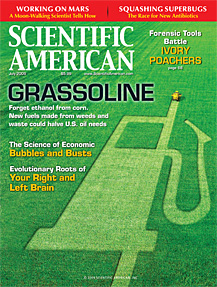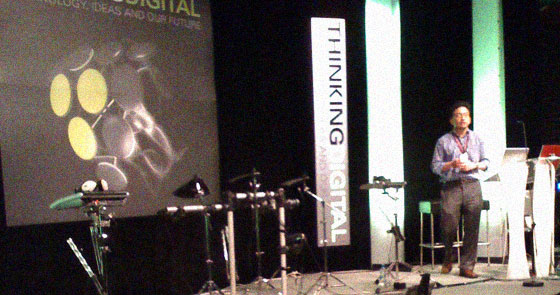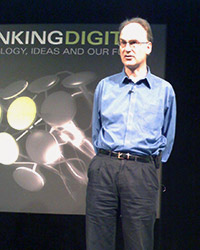Mixing Science and Politics (and Economics)
So many of you have taken the time to respond to my blogs thoughtfully that I feel I should comment in kind. In looking through the many comments, however, I see that most of what I would say has already been said by people who responded to my critics. Nevertheless…
First of all, why is it okay to mix science and religion (with atheists eagerly do in debunking religious claims) but not okay to mix science and politics/economics? Why is it okay for liberal atheists to stick it to religious believers and twist the knife slowly, but when it comes to getting your own (political/economic) beliefs challenged, that’s off limits — NOMA (nonoverlapping magisterial) for science and politics? I don’t see how they are different in principle. Skeptic is a science magazine, not an “atheist” magazine; nevertheless, we routinely deal with religious claims and no one ever complains about that. The closest we have come to political/economic issues is environmentalism (Vol. 9, No. 2 — sold out), overpopulation (Vol. 5, No. 1), and global warming Vol. 14, No. 1). For all three we published several articles; in Vol. 14, No. 1, for example, we published articles both skeptical of global warming and accepting of global warming. So I don’t see what would be wrong with publishing articles pro, con, and neutral on political and economic claims.
One person wrote me a private email that said he thought of me as the next Carl Sagan, but now that I’ve gone to the dark side (turning Right, although I’m as critical of the Right as I am the Left), because Carl was “apolitical.” Carl Sagan was many things, but apolitical was not one of them. Carl was a Liberal and proudly wore his politics on his sleeve, such as when he marched in protest at nuclear sites or testified before Congress about the dangers of nuclear winter. I admire him for having the courage of his convictions, which intimately blended his science and (Left) politics. If you think Sagan was apolitical it is because you happen to agree with his politics and so those ideas seem simply correct, not political. If you don’t share his politics (I share about half of them), then it’s obvious that Sagan was not apolitical.
The liberal bias in the skeptical community was identified by many people in the comments section of my blog, for example by “DR,” “James,” and “Devil’s Advocate”:
… Sadly, there is a lot of hatred toward libertarianism at JREF [he means TAM]. I can be an atheist, believe gay marriage is ok, think nothing of smoking pot, and I won’t get half as much grief from a conservative that I do from an American liberal who reels and squirms when I say that the welfare state is immoral or that free trade and voluntary transactions in capitalism promote fair and just outcomes. It’s like the only reason why I have rationalized this set of morality is because I’m a supremely evil person and must be wrong… —DR
… I’m disappointed, but not surprised by the large group of liberal skeptics. I’ve talked to too many Democrat-card-carrying skeptics that spout the same unoriginal, canned rhetoric and continual spewing hatred of Republicans. For a group that supposedly supports tolerance, they’re anything but tolerant …
—James
I’ve three times over twenty years joined local skeptic groups and all three times there was a presumption that if I was a skeptic, then of course I’m also liberal in my politics. Two times I tried to be what I am but was marginalized, treated like a Goldwater (or Reagan, or Bush) mole. The third time I tried to avoid political discussion, but it was not possible, so, unwilling to lie, I left. My refusal to come over to pure liberalism clearly wasn’t going to be tolerated. All I wanted to do was examine UFO claims and crop circles, but… —Devil’s Advocate
Another critic named John D. Draeger makes a good point that I wish to acknowledge: “He [me] does NOT believe that political persuasions and different economic models for how societies should be run are moral value judgements…. Social services can be paid for in different ways, and in a democratic society it’s up to the majority to define how that is done. Social services can be paid for in different ways, and in a democratic society it’s up to the majority to define how that is done.” That’s true, in a democracy the majority rules how to divvy up public funds for social services, and that tends to be more of a value judgment than a science. But as someone else wrote just below that, quite cleverly I think…
First of all, democratic societies can still be evil, as the famous saying goes: “democracy is two wolves and one lamb voting on what to have for lunch.” And then in another famous quote (attributed to several), “A democracy cannot exist as a permanent form of government. It can only exist until the voters discover that they can vote themselves largesse from the public treasury. From that moment on, the majority always votes for the candidates promising the most benefits from the public treasury with the result that a democracy always collapses over loose fiscal policy, always followed by a dictatorship. Thus our founding fathers gave us a republic … if we can keep it.
Even this is a value judgment, I agree, but surely we can apply some forms of social science to inform our value judgments. For example, we may as a society make the value judgment that it would be good if every child received a basic K–12 education. I agree with this value judgment, and would add to it the value judgment that it would be equally important for every child to have a computer and Internet access because that is the future of education. So we share that value judgment. However, the next question is a pragmatic one: who is going to pay for this education (and computers/Internet)? Parents? Churches? NGOs? Charities? Government? If the latter — the value judgment we have made — then do parents get to choose among the various government schools of where to send their children? (No.) Do parents who choose to send their children to private schools have to also pay for government schools? (Yes.) Is that fair? You make that value judgment. I don’t think that it is fair. To be consistent, if you are pro-choice on abortion you should also be pro-choice on education. The deeper value judgment here is being pro-choice about everything. Choice = freedom.
Some correspondents hated the political diagram because it seems to elevate libertarianism above the traditional left-right spectrum. Okay, then you come up with something other than the left-right linear spectrum to visualize where someone would fall on that line who is socially liberal and fiscally conservative. You draw it and I’ll publish it in a future blog.
Some people hate the word “libertarian.” I’m not crazy about it either, but haven’t thought of a better label. Labels are useful because they enable people to take cognitive shortcuts, but they also lead to shortcuts to nuanced thinking about what someone believes. “Oh, you’re one of those…” full stop. We all do this, of course, but I call myself a libertarian for the same reason I call myself a feminist, an atheist, and a pro-choicer — because it is the accepted language and we have to communicate ideas with language. But I much prefer to be assessed on specific issues.
Several of you said that I am a victim of one of my own central tenets of baloney detection: the confirmation bias, where we look for and find confirmatory evidence for what we already believe and ignore the disconfirmatory evidence. Yes, I will admit, I do this. Everyone does, and we must guard against it, especially when it comes to religion, politics, and economics. To combat this problem, I read the conservative Wall Street Journal and the liberal Los Angeles Times. I listen to such conservative talk radio hosts as Hugh Hewitt and Dennis Praeger as well as the very liberal Bill Maher. I have read Karl Marx’s books as deeply and carefully as I have read Adam Smith’s books. I have read a host of books from liberal and conservative and libertarian authors on the current economic meltdown. And although I have a few libertarian and conservative friends, because I work in the sciences and in publishing, the vast majority of my friends, acquaintances, staff, co-workers, and colleagues are liberals who I can assure you are never shy about letting me know where they think I’ve gone off the political or economic rails.
Finally, let me add that one of the appealing things to me about the libertarian worldview is that it is optimistic, uplifting, and most importantly (to me) anti-elitist. I’m in favor of doing whatever we can to allow the little guy to succeed and to break up power blocs that prevent the average Joe or Jane from reaching their full potential. The Constitutional divisions of power in our Democracy — emulated by many others around the world — are a huge improvement from centuries past that allowed or enabled some to succeed at the expense of others. That was a zero-sum world. Over the past 200 years the spread of democracy and capitalism has done more toward achieving a Nonzero world than anything else — more people in more places more of the time have more power and liberty and wealth than any time in the previous four millennium. Therefore, the more we can spread democracy and capitalism the better off more of us will be more of the time.
• FOLLOW MICHAEL SHERMER ON TWITTER •





